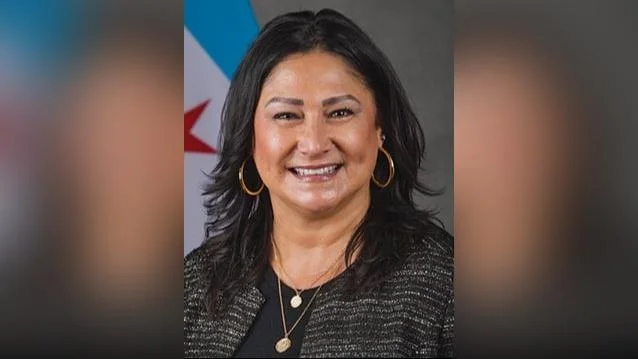Julie Hernandez-Tomlin Commissioner | Chicago City website
Julie Hernandez-Tomlin Commissioner | Chicago City website
Today, the Chicago City Council approved Mayor Brandon Johnson's Green Social Housing (GSH) Ordinance. This initiative aims to expand affordable housing in Chicago while maintaining the city's green building standards. The ordinance establishes an independent nonprofit authorized to serve as a GSH developer, making Chicago the first major city in the U.S. to adopt this model for permanent affordable housing.
Mayor Johnson emphasized the importance of local solutions amid uncertain federal housing funds: “At a time when federal funds for housing are uncertain, we continue to develop tools to make Chicago the safest and most affordable big city in America,” he stated. He expressed confidence that this initiative would set a national example, being part of a broader Housing and Economic Development Bond aimed at significant investment in affordable housing and economic development.
The urgency is underscored by data showing over half of Chicago renters are 'cost-burdened,' spending more than 30% of their income on housing. With diminishing federal support for programs like the Low-Income Housing Tax Credit (LIHTC), Chicago seeks progressive solutions centered around community needs.
Department of Housing Commissioner Lissette Castañeda remarked, “With the passage of this ordinance, we are showing the nation what it looks like to take local, innovative action in the face of a growing housing crisis.” She highlighted that this model will build sustainable, community-led housing responsive to Chicagoans' needs.
The GSH initiative will receive $135 million from Mayor Johnson’s Housing and Economic Development Bond. The Residential Investment Corporation (RIC), a newly created nonprofit, will manage these developments independently from the Department of Housing. RIC will own and operate these projects, reinvesting profits into future initiatives or enhancing affordability. This revolving loan fund offers low-cost financing and equity investments for permanently affordable mixed-income housing development.
RIC will collaborate with private developers while retaining majority ownership during construction and stabilization phases. This approach merges private sector efficiency with lasting community benefits, supporting Chicago's Climate Action Plan and Environmental Justice Action Plan focused on resource protection and emission reduction.
Construction on the first Green Social Housing development is planned for 2026. Angela Tovar, Chief Sustainability Officer and Department of Environment Commissioner, noted that “This ordinance is a powerful reminder that housing justice and climate action go hand in hand.”
The ordinance includes worker protections under Illinois' Prevailing Wage Act and aligns with Chicago's M/WBE program values around equity and inclusion. It also adds preferences for veterans and people with disabilities while ensuring effective oversight through input from the City Council.
While other cities have explored similar models, including Atlanta, Chattanooga, and Montgomery County, Chicago becomes the largest city to implement such an approach with an extensive revolving fund.






 Alerts Sign-up
Alerts Sign-up